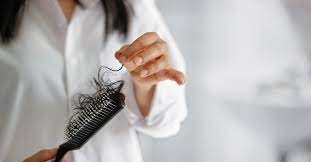Experiencing Hair Loss & Nail Disorders in Dubai can profoundly affect an individual’s psychological well-being. Beyond the physical manifestations, these conditions can lead to emotional distress, self-esteem issues, and social anxiety. This article explores the psychological implications of hair loss and nail disorders, emphasizing the importance of addressing mental health alongside physical treatment.
Understanding the Psychological Effects
The Connection Between Appearance and Self-Esteem
Physical appearance plays a significant role in self-esteem and self-image. For many individuals, hair and nails are key aspects of their identity and how they present themselves to the world. Hair loss and visible nail disorders can disrupt this perception, leading to feelings of unattractiveness and diminished self-worth.
Common Psychological Responses
Individuals dealing with hair loss or nail disorders may experience a range of psychological responses, including:
- Anxiety: The uncertainty surrounding the progression of hair loss or the visibility of nail disorders can lead to anxiety. Individuals may worry about their appearance in social situations or fear judgment from others.
- Depression: Chronic conditions that alter one’s appearance can contribute to feelings of sadness or hopelessness. The persistent nature of some hair and nail disorders may exacerbate these feelings, especially if treatments are ineffective.
- Social Withdrawal: Many individuals may withdraw from social situations due to embarrassment about their appearance. This withdrawal can lead to isolation, impacting relationships and overall quality of life.
The Impact on Daily Life
The psychological effects of hair loss and nail disorders can extend into daily life, influencing various aspects, including:
- Work Environment: Concerns about appearance can affect job performance and career advancement. Individuals may avoid situations that require public speaking or client interaction due to anxiety about their looks.
- Personal Relationships: Hair loss and nail disorders can strain personal relationships. Partners may not understand the emotional toll these conditions take, leading to feelings of frustration and isolation.
- Self-Care Practices: Individuals may neglect self-care routines, such as grooming or maintaining healthy habits, further impacting their physical and mental health.
Seeking Support
Professional Help
Addressing the psychological impact of hair loss and nail disorders is crucial. Seeking professional help, such as therapy or counseling, can provide individuals with tools to manage their feelings effectively. Cognitive-behavioral therapy (CBT) can be particularly beneficial in changing negative thought patterns and developing coping strategies.
Support Groups
Joining support groups can also be beneficial for individuals experiencing hair loss or nail disorders. Sharing experiences with others facing similar challenges can foster a sense of community and reduce feelings of isolation. Support groups provide a safe space for individuals to discuss their feelings, share coping mechanisms, and receive encouragement.
Treatment Options and Holistic Approaches
Medical Treatment
While addressing the psychological aspects is vital, pursuing effective medical treatments for hair loss and nail disorders can also improve mental well-being. Successful treatment outcomes can enhance self-esteem and provide a sense of control over one’s appearance. Treatments may include medications, therapies, or surgical options, depending on the specific condition.
Holistic Approaches
In addition to medical treatments, holistic approaches can play a significant role in managing the psychological impact of hair loss and nail disorders. Techniques such as mindfulness, meditation, and stress-reduction exercises can help individuals cultivate a more positive mindset. Engaging in activities that promote relaxation and self-care, such as yoga or creative hobbies, can also improve overall mental health.
Building Resilience
Developing resilience in the face of hair loss or nail disorders involves cultivating a positive self-image and embracing one’s uniqueness. Strategies to foster resilience include:
- Positive Affirmations: Practicing positive self-talk and affirmations can help individuals combat negative thoughts about their appearance.
- Focus on Strengths: Shifting the focus from perceived flaws to personal strengths can enhance self-esteem. Recognizing talents, skills, and accomplishments can help individuals see beyond their physical appearance.
- Education: Understanding the nature of hair loss and nail disorders can empower individuals. Knowledge about the conditions and available treatments can foster a sense of control and reduce anxiety.
Conclusion
The psychological impact of hair loss and nail disorders is a critical aspect that should not be overlooked. Individuals experiencing these conditions often face emotional challenges that can affect their overall quality of life. Acknowledging the connection between physical appearance and mental health is essential for holistic treatment.
By seeking professional help, engaging in support networks, and pursuing effective medical treatments, individuals can navigate the emotional landscape of hair loss and nail disorders. Building resilience and focusing on self-care can lead to improved self-esteem and a healthier mindset, enabling individuals to embrace their unique beauty.





Comments